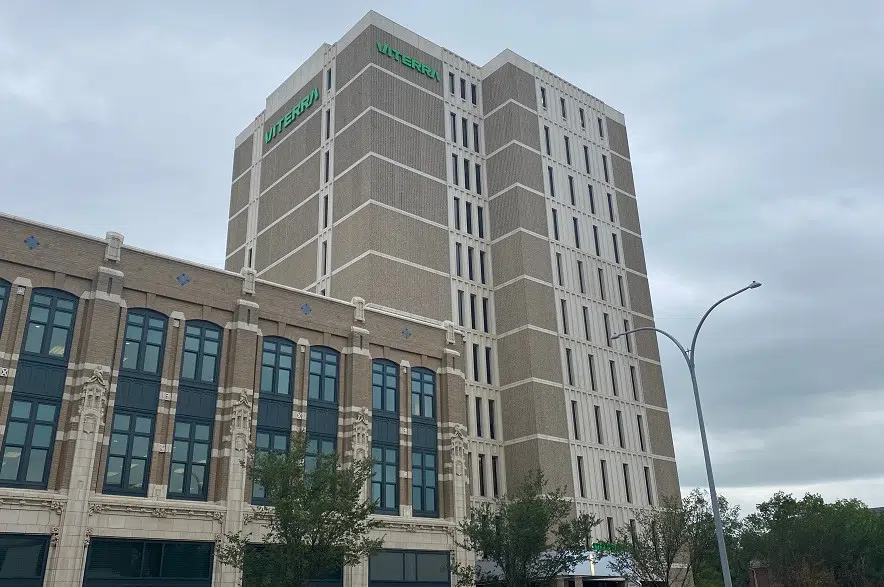It turns out the City of Regina is putting up a lot of cash and value for Viterra’s planned canola crush facility north of the city.
In 2021, Viterra bought more than 600 acres of land north of Regina from the city for $4 million, about $2 million less than the assessed value. The company is planning to build a $1-billion canola crush facility on that land.
In addition to that, the city is also providing $18.6 million in infrastructure work and incentives to Viterra – more than double the cost of the full 11th Avenue Revitalization project currently in its first phase.
“We also see it as, obviously, an investment that would result in significant economic activity here in Regina and up on those lands,” explained Barry Lacey, the executive director of financial strategy and sustainability for the City of Regina.
Some of the value comes from investments the city is making into developing infrastructure on and to that land, like water and wastewater, which accounts for $9.3 million of the total.
“That would not only support the Viterra plant but also likely other surrounding developments up in the north end of the city, whenever those developments occur,” said Lacey.
When it comes to residential developments, often the developer will have to pay for installing infrastructure, but Lacey said these were originally city-owned lands.
“To some extent, while we’ve optioned some of those lands to Viterra and they bought them, they were initially city-owned lands, so to some extent we do see ourselves as a land developer that would bring that water and wastewater lines in as well,” said Lacey.
The city is also planning to put money into the rail infrastructure in the area — $7.3 million total, $1.3 million of which is meant to buy land for the line as well as water infrastructure.
Lacey explained the city wants the rail lines Viterra will build to work and be consistent with the new lines that would be developed if and when the city goes ahead with relocating the rail tracks that cross Ring Road.
“We committed up to $6 million basically to ensure that that spur line is built to a higher standard so that it could become a main line, and also to ensure that the route that Viterra was using was consistent with our rail relocation project,” explained Lacey.
When the relocation goes ahead, Lacey said Viterra has committed to turning that spur line over to CP Rail.
“This is a one-time opportunity to take advantage of investment Viterra’s making into rail and leverage that investment in the hopes that the Ring Road rail relocation project will proceed at a future point in time, and when it does proceed, that we have built that portion of the rail already,” he said.
The city has also committed to pay the development charges around the project, which add up to about $2 million.
Lacey said any economic opportunity is assessed by the city on its own merits when it comes to any incentives, but he called this one “significant” with its $1-billion price tag and potential to increase Regina’s GDP.
“This is, to some extent, unique with respect to the size and scope of this project,” said Lacey, but he couldn’t say whether this was the largest incentive package in terms of dollar value ever handed out by the city.
“This is probably the most significant investment the city has made in some time with respect to a large economic development opportunity,” said Lacey.
980 CJME reached out to Viterra for comment but didn’t hear back by the time of publication.











